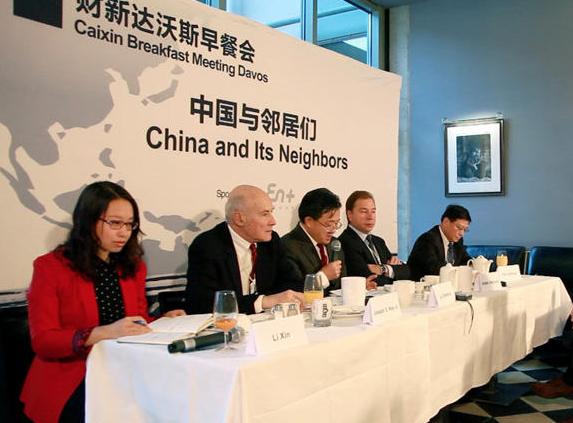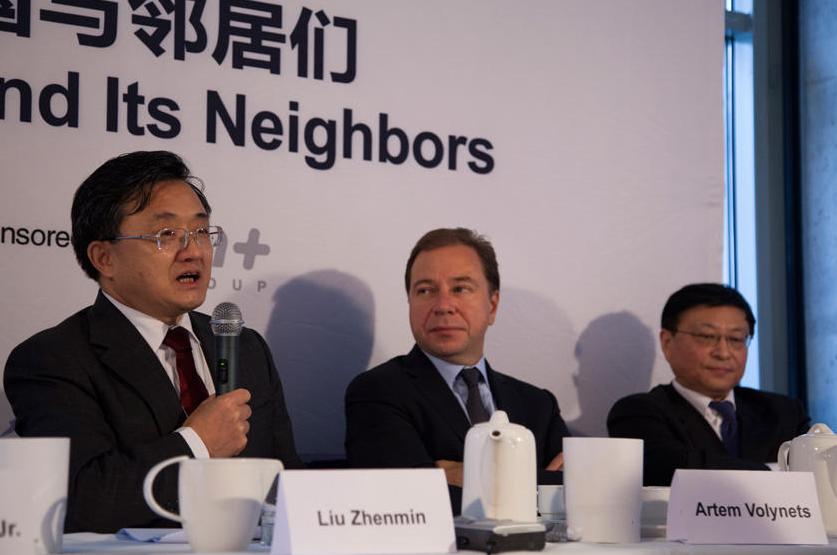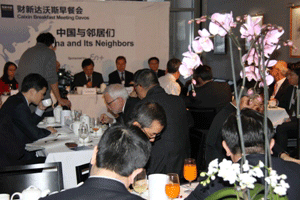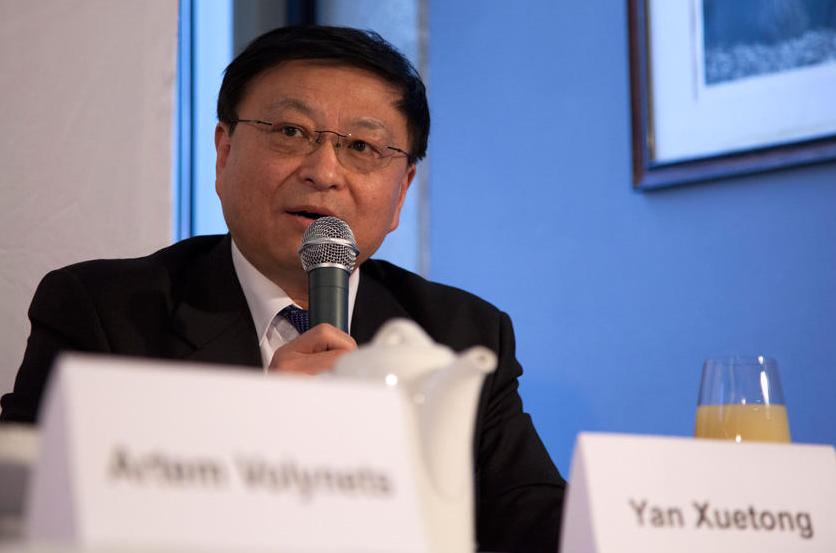
Introduction
- Caixin Breakfast Meeting Davos:China and Its Neighbors
-
By helping to maintain the stability of the Asian order, will China rise as a responsible world power? Facing the new era, what is the bottom line of China’s Good Neighbour Policy?
“Caixin Breakfast Meeting Davos: China and Its Neighbours” at Winter Davos 2013 will invite well-known Chinese and foreign political and business leaders, famous economists, and other distinguished Davos guests to discuss the above issues, and provide strategic insight into the future of China's diplomacy
Reports
- Turning a Page on the U.S. Pivot to Asia
- Wary of the motives behind the Obama Administration's announcement of a strategic pivot to Asia, many in China have defined the shift as skewed in favor of expanding U.S. influence.
In an interview in Beijing with Caixin, Kenneth Lieberthal, senior fellow at the U.S. think tank Brookings Institute, said the policy was spurred by economic realities.
Looking ahead, Lieberthal also explained how China's urbanization drive will require a coordinated set of political reforms in several areas.
Lieberthal served as the senior director for Asia at the U.S. National Security Council under the Clinton administration and is the author of several books including, "Bending History: Barack Obama's Foreign Policy." Excerpts of the interview follow.
- Future of Sino-U.S. Ties Is in Beijing's Hands
- Both the U.S. presidential election and China's change of leadership took place in November. They were the two most watched events of the year. China's transfer of power within the Communist Party has become increasingly institutionalized. Meanwhile, America's history of democratic elections is deep-rooted and continues to play a fundamental role in its national and social dimensions.
The United States and China are the superpower and the emerging power, and also the world's largest and second-largest economies. The development of Sino-U.S. relations will have a direct impact on the global strategic and economic situation. The high-level changes of leadership provide an excellent window of opportunity for the development of their bilateral relations.
- Can Abe Break the Ice Again?
- After a hiatus of five years, Shinzo Abe became Japan's prime minister again on December 26. What will this mean for Sino-Japanese relations, which are at a 40-year low because of the Diaoyu Islands dispute?
Many observers earlier believed that the Chinese government had been expecting the Democratic Party of Japan (DPJ) to step down from power, so they knew it wasn't very useful to start negotiations with then prime minister Yoshihiko Noda to repair the two countries' relations. But they hope to resume talks with Abe who, during his previous premiership in 2006-07 agreed to develop "mutually beneficial strategic relations."
- CEO Talks Russia and the China Energy Mix, Pt 1
- Sino-Russian energy relations have been described as a complementary relationship catering to both countries' strategic interests. It pairs one of the world's richest and largest energy consuming countries, with its energy and resource-rich neighbor.
A January 2012 report by the China Petroleum and Chemical Industry Federation said that China's energy consumption is expected to rise significantly this year. It is estimated that China's crude oil consumption would go up 5.3 percent year-on-year, compared to the 3.5 percent rise in 2011. Natural gas consumption, on the other hand, would rise 15.3 percent.
Topic Summary
The relationship between China and its neighboring countries – especially the relationship with Russia, Japan and the US – directly influences the international political and economic landscape. How will China and Russia build a strategic partnership based on real mutual trust, rather than focusing attention on the supply and demand of energy resources? Will the current Japanese government deepen and enhance Sino-Japan strategic relations? What will the US government’s “pivot to Asia” policy bring to the Asia-Pacific region? In the new context, how should China adjust its geopolitical and geo-economic strategies?
视频
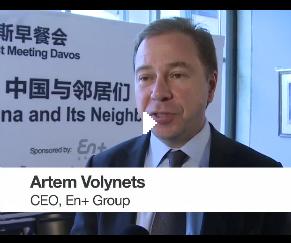 About EN+ Group
About EN+ Group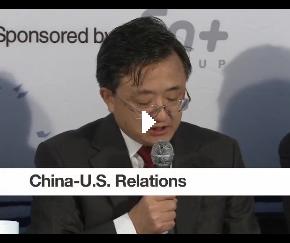 China-US Relations
China-US Relations 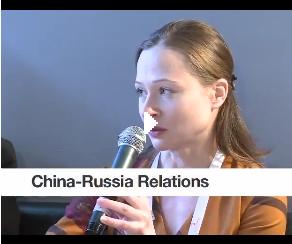 China-Russia Relations
China-Russia Relations
Agenda
- January 25th
| Time | Topic | Speakers |
|---|---|---|
| 8:00-9:30 | Caixin Breakfast Meeting Davos:China and Its Neighbors |
Liu Zhenmin, Ambassador Extraordinary and Plenipotentiary, Permanent Representative of the People's Republic of China,Permanent Mission of the People's Republic of China
Yan Xuetong, Dean, Institute of Modern International Relations of Tsinghua University Joseph S. Nye Jr Distinguished Service Professor, Kennedy School of Government at Harvard University Artem Volynets, Chief Executive Officer of EN+Group |
如有意愿转载,请发邮件至hello@caixin.com,获得书面确认及授权后,方可转载。
京ICP证090880号 京ICP备10026701号-8 |
 京公网安备 11010502034662号 | 广播电视节目制作经营许可证:京第1015号 | 出版物经营许可证:第直100013号
京公网安备 11010502034662号 | 广播电视节目制作经营许可证:京第1015号 | 出版物经营许可证:第直100013号Copyright 财新网 All Rights Reserved 版权所有 复制必究


